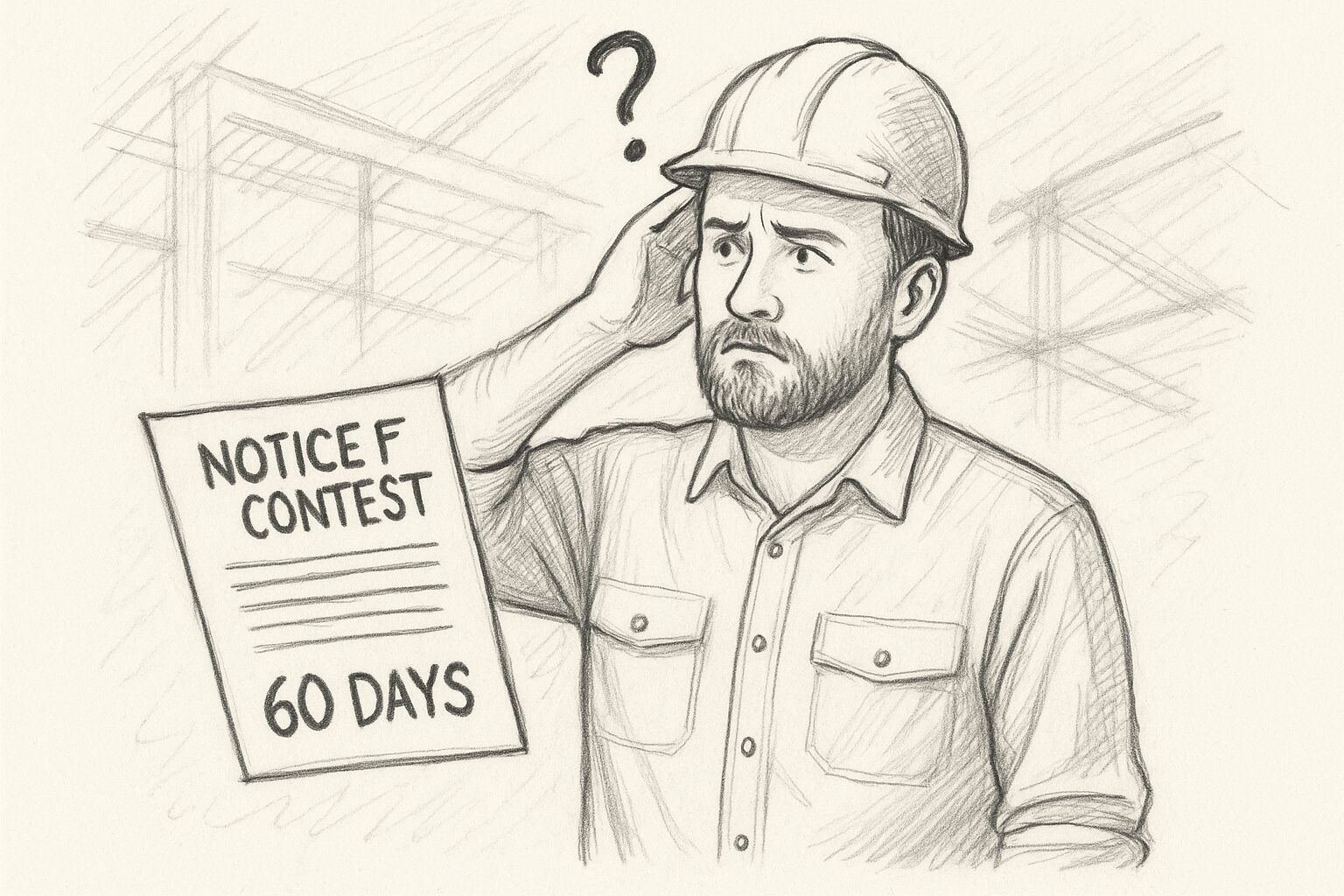Understanding the Impact on Your Lien Rights
In Florida, a construction lien is a powerful tool for contractors, subcontractors, and suppliers to secure payment. However, receiving a Notice of Contest of Lien can significantly alter your ability to enforce that lien. This legal document, filed by a property owner, reduces the time you have to act from one year to just 60 days. Failing to respond appropriately can result in the automatic loss of your lien rights.
This guide will cover:
- What a Notice of Contest is and its legal implications
- How it affects your lien enforcement timeline
- Immediate steps to take upon receiving one
- Common mistakes to avoid
- Best practices for protecting your payment rights
What Is a Notice of Contest?
A Notice of Contest of Lien is a statutory instrument under Florida Statute §713.22(2) that allows a property owner to shorten the period during which a lienor can enforce a construction lien. By filing this notice, the owner reduces the enforcement window from one year to 60 days from the date the notice is served. If the lienor does not initiate a foreclosure lawsuit within this timeframe, the lien is automatically extinguished.
How a Notice of Contest Works
- 1. Filing by the Property Owner: The property owner or their attorney records the Notice of Contest in the county where the lien was filed.
- 2. Service by the Clerk of Court: The clerk serves a copy of the notice to the lienor at the address provided in the original lien via certified mail.
- 3. 60-Day Countdown: The lienor has 60 days from the date of service to file a lawsuit to enforce the lien.
- 4. Automatic Extinguishment: Failure to file suit within this period results in the automatic extinguishment of the lien.
Immediate Steps to Take Upon Receiving a Notice of Contest
1. Verify the Notice Details
- Check the Dates: Confirm the recording and mailing dates to accurately calculate your 60-day deadline.
- Confirm Address Accuracy: Ensure the notice was sent to the correct address listed on your original lien.
2. Assess the Validity and Value of Your Lien
- Evaluate Lien Validity: Determine if your lien was properly filed and within the statutory deadlines.
- Consider the Financial Implications: Weigh the costs of litigation against the amount owed.
3. Consult with a Construction Attorney
- Seek Immediate Legal Advice: An attorney can help assess the strength of your claim and advise on the best course of action.
- Prepare for Possible Litigation: If necessary, your attorney can assist in drafting and filing a foreclosure lawsuit within the required timeframe.
4. File a Foreclosure Lawsuit if Necessary
- Act Promptly: If negotiations fail, ensure a lawsuit is filed within the 60-day window to preserve your lien rights.
Common Pitfalls to Avoid
- Ignoring the Notice: Assuming the notice is a mere formality can lead to the loss of lien rights.
- Delaying Legal Consultation: Waiting too long to seek legal advice can jeopardize your ability to act within the 60-day period.
- Incomplete Documentation: Failing to maintain proper records can weaken your position in enforcing the lien.
Final Thoughts
Receiving a Notice of Contest of Lien is a critical juncture in the lien enforcement process. Acting swiftly and decisively is paramount to preserving your rights. By understanding the implications, verifying the notice details, consulting with legal counsel, and taking appropriate action within the 60-day window, you can effectively protect your financial interests.
Disclaimer:
This article is provided for general informational purposes only and does not constitute legal advice. Reading this guide does not create an attorney-client relationship. Because lien laws are complex and fact-specific, you should consult a qualified Florida attorney for advice regarding your particular situation.



